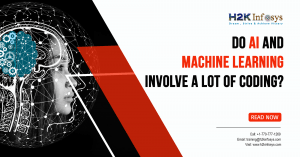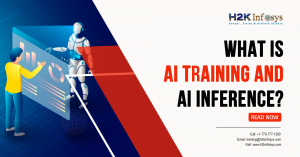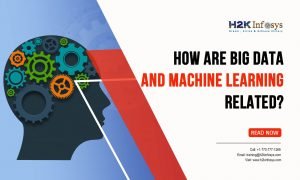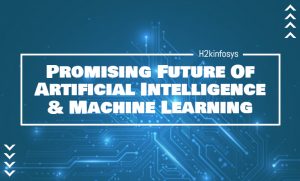Artificial Intelligence (AI) is reshaping every industry from healthcare and finance to entertainment and customer service. If you’re just getting started and looking for an Artificial intelligence course for beginners, you’re already on the right path to building one of the most in-demand skill sets of the decade.
In this guide, we’ll explore exactly what you’ll learn from the best AI Courses online, covering everything from Python programming and machine learning to neural networks and generative AI applications. You’ll also discover the projects, tools, and practical skills that make you job-ready by the end of your course.

Why Start with an AI Courses for Beginners?
AI might sound complex, but beginner-friendly courses break it into digestible, real-world concepts. The best programs are designed for learners from all backgrounds students, working professionals, or anyone curious about how AI shapes modern life.
A high-quality Artificial intelligence course online introduces you to coding, math foundations, and real-world applications without overwhelming you. You’ll learn by doing through labs, projects, and guided assignments that simulate real AI workflows.
1. Python Programming: The Core Skill Behind AI
Every Artificial intelligence course for beginners starts with Python. Python is the universal language of AI because it’s simple, powerful, and supported by thousands of libraries.
You’ll learn:
- Python syntax, variables, data types, loops, and functions
- Working with Jupyter or Google Colab notebooks
- Importing and using packages with
pip - Debugging and writing readable code
Popular Python libraries you’ll master:
- NumPy – numerical computing
- Pandas – data manipulation and cleaning
- Matplotlib/Seaborn – visualization
- Scikit-learn – classical machine learning algorithms
Example you’ll practice:
import pandas as pd
from sklearn.linear_model import LinearRegression
data = pd.read_csv("sales.csv")
X = data[['marketing_spend']]
y = data['revenue']
model = LinearRegression()
model.fit(X, y)
print("Predicted revenue:", model.predict([[5000]]))
By the time you finish this stage, you’ll feel comfortable writing code and understanding how Python connects data to AI logic.
2. Math and Statistics Simplified for AI
Don’t worry you won’t need a Ph.D. to grasp the math behind AI.
The best Artificial intelligence course online simplifies concepts like:
- Linear Algebra: vectors, matrices, and operations
- Calculus: gradients, optimization, and learning rates
- Probability & Statistics: distributions, mean, median, correlation
- Evaluation Metrics: accuracy, precision, recall, F1-score
You’ll use visual examples plots, charts, and animations to understand how algorithms “learn.”
Courses often teach why these principles matter, not just how to calculate them.
3. Data Preparation and Feature Engineering
“Garbage in, garbage out” is a golden rule in AI. Most courses spend a good chunk of time teaching you how to prepare and clean data before modeling.
You’ll learn how to:
- Handle missing data and outliers
- Normalize and scale values
- Encode categorical variables
- Create new meaningful features
By the end of this stage, you’ll be able to transform raw datasets into training-ready assets a crucial skill for any AI engineer or data analyst.
4. Machine Learning Fundamentals
Once your data is clean, you’ll dive into the heart of an Artificial intelligence course for beginners machine learning (ML).
You’ll explore algorithms like:
- Linear Regression and Logistic Regression
- Decision Trees and Random Forests
- K-Means Clustering and Naïve Bayes
- Support Vector Machines (SVM)
You’ll understand how each model works, what problems it solves, and how to measure performance.
Hands-on mini-projects include:
- Predicting house prices
- Classifying spam emails
- Clustering customer groups
These projects will help you understand the end-to-end workflow of an AI solution from data to predictions.
Model Evaluation and Optimization
The best Artificial intelligence course online doesn’t just teach you how to train models it shows you how to evaluate and improve them.
You’ll practice:
- Splitting data into train, test, and validation sets
- Using metrics like confusion matrices and ROC curves
- Hyperparameter tuning with Grid Search and Random Search
- Detecting overfitting and applying regularization
This module ensures your models perform reliably in real-world scenarios, not just on training data.
Deep Learning and Neural Networks
Once you’ve grasped machine learning, it’s time to explore deep learning the backbone of modern AI.
Topics covered include:
- What neural networks are and how they work
- Structure of neurons, layers, and activations
- Building models with TensorFlow and Keras
- Training image classifiers or text sentiment analyzers
Sample project: Build a digit recognizer using the MNIST dataset and achieve over 90% accuracy.
You’ll also learn about overfitting, dropout layers, and model regularization.
Natural Language Processing (NLP)
Text is everywhere, and NLP allows machines to understand it.
In your Artificial intelligence course for beginners, you’ll get hands-on with:
- Tokenization and stemming
- Word embeddings (Word2Vec, GloVe)
- Sentiment analysis
- Chatbot design basics
By the end, you can build simple systems that summarize reviews, detect spam, or engage users in automated conversations.
8. Generative AI and Large Language Models
Modern Artificial intelligence courses online have started including Generative AI modules, giving beginners early exposure to ChatGPT-like models.
You’ll explore:
- How LLMs (Large Language Models) process prompts
- Prompt engineering techniques
- How to use APIs like OpenAI or Hugging Face
- Creating small Q&A or content-generation apps
Practical project ideas:
- Build a simple AI writing assistant
- Generate summaries for long documents
- Create a chatbot for customer support
AI Tools and Ecosystem Overview
You’ll also gain hands-on experience with tools used across AI workflows.
Tools you’ll learn:
- Jupyter Notebook or Google Colab – for interactive coding
- Git and GitHub – for version control and collaboration
- Streamlit or Gradio – to deploy your AI models as web apps
- MLflow – for tracking experiments and model versions
These platforms make you feel like part of a real AI team, preparing you for future professional environments.
Responsible AI and Ethics
The best Artificial intelligence course for beginners also emphasizes responsibility and fairness.
You’ll learn about:
- Avoiding algorithmic bias
- Data privacy and anonymization
- Model transparency and explainability
- Ethical guidelines in AI deployment
Understanding ethics ensures you build AI that’s safe, fair, and trustworthy.
Real-World Projects and Capstone Experience
By the end of an Artificial intelligence course online, you’ll apply everything you’ve learned to a comprehensive capstone project.
Typical capstone ideas:
- Customer Churn Prediction: Predict which customers are likely to leave a company.
- Image Classification: Build a model to identify objects in photos.
- Text Sentiment Analyzer: Determine sentiment from tweets or reviews.
- Generative Chatbot: Create a custom assistant using OpenAI’s API.
These projects showcase your ability to collect data, preprocess it, build models, evaluate results, and present insights exactly what employers want.
Building Your AI Portfolio
Your AI journey doesn’t stop at learning you’ll also build a portfolio that proves your skills.
Portfolio items include:
- Well-documented Jupyter notebooks
- Model performance metrics and dashboards
- Small deployed apps or demos
- Write-ups explaining your approach
This portfolio becomes your digital resume for job applications, internships, or freelance work.
Career Paths After Completing an Artificial Intelligence Course Online
Completing an Artificial intelligence course for beginners can open doors to several roles:
| Career Role | Average Salary (U.S.) | Description |
|---|---|---|
| AI Engineer | $110,000+ | Designs, trains, and deploys AI models |
| Data Scientist | $120,000+ | Uses data to find insights and build predictive models |
| Machine Learning Engineer | $115,000+ | Specializes in production-ready ML pipelines |
| NLP Engineer | $105,000+ | Works on chatbots and language models |
| Data Analyst | $80,000+ | Interprets datasets to support decision-making |
These are entry-to-mid-level roles that you can target after completing your beginner course and a few real projects.
Learning Path: Your 3-Month AI Journey
Here’s a simple 12-week roadmap followed by most beginner courses:
| Phase | Duration | Focus |
|---|---|---|
| Month 1 | Weeks 1–4 | Python, math, and data handling |
| Month 2 | Weeks 5–8 | Machine learning and model evaluation |
| Month 3 | Weeks 9–12 | Deep learning, NLP, and Generative AI |
By the end of 90 days, you’ll have multiple projects, code samples, and a foundation to specialize further in ML, NLP, or AI engineering.
How to Choose the Best Artificial Intelligence Course Online
When selecting a course, prioritize those that offer:
- Hands-on labs and real-world projects
- Instructor or mentor support
- Certificate of completion
- Capstone project submission
- Career guidance and placement help
Look for programs that provide flexible schedules, lifetime access to materials, and communities where you can ask questions or share progress.
Frequently Asked Questions
Q1. Do I need prior coding knowledge to join an Artificial intelligence course for beginners?
No, most beginner courses start from scratch, introducing Python slowly through practical examples.
Q2. Can I learn AI without a powerful computer?
Yes! Cloud-based platforms like Google Colab let you run code and use GPUs for free.
Q3. What certificate will I get?
You’ll receive a certificate upon completion, which adds credibility to your resume and LinkedIn profile.
Q4. How long does it take to complete an Artificial intelligence course online?
Typically 8–12 weeks for beginners, depending on your pace and the course structure.
Q5. Will I be job-ready after completing the course?
Yes, if you complete all projects, understand the workflow, and build a strong portfolio, you’ll have a solid foundation for internships or entry-level AI roles.
17. Key Takeaways
- You’ll learn: Python, data handling, ML algorithms, neural networks, and generative AI.
- You’ll practice: real-world projects like churn prediction, chatbots, and sentiment analysis.
- You’ll gain: technical expertise, portfolio projects, and certification.
- You’ll be ready: to pursue AI-related jobs or further advanced courses.
Final Thoughts
Learning AI might feel like a big leap, but with the right Artificial intelligence course for beginners, it becomes an exciting, structured, and rewarding experience. Whether you join an Artificial intelligence course online or in a classroom, you’ll be building skills that shape the digital future.
Remember AI isn’t just about coding or math. It’s about solving problems, understanding data, and creating technology that makes life smarter. Start today, stay curious, and in just a few months, you’ll move from beginner to builder in the world of Artificial Intelligence.


























